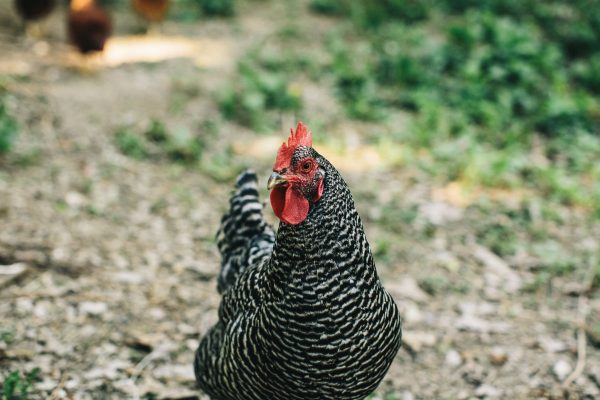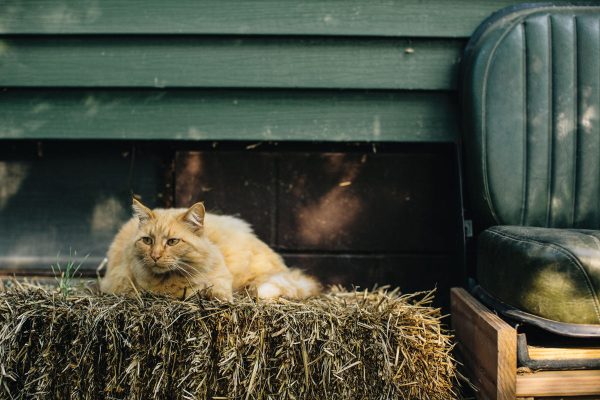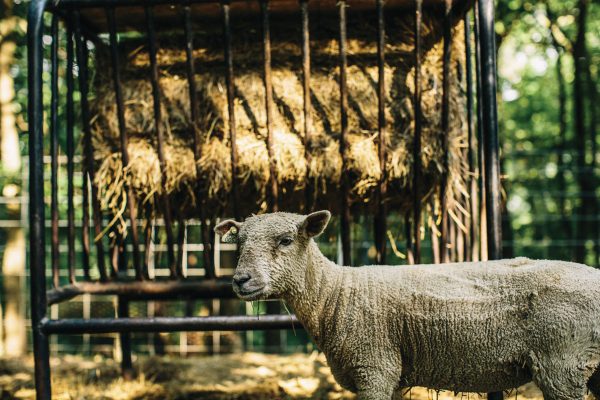Hungry for a taste of the simple life? You don’t have to sacrifice the convenient luxuries of living in the Omaha metro.
Nick Batter, a lawyer who raises livestock in the Ponca Hills area, knows how to get the best of both worlds.
r r
r
Batter owns five acres near Hummel Park, just outside of the city limits. He says he can't imagine any other place where a young professional can raise a pig or shoot a shotgun in his or her front yard, and then drive 10 minutes to have sushi or see a Broadway show.
Urban Logistical Hassles
After first determining whether barnyard animals are allowed in your neighborhood, Batter says there are some challenges to raising livestock in the Omaha metro.
r r
r
“There's not many people to buy livestock from,” he says. He has to go on road trips to get animals. He must be selective about breeds due to space limitations: He raises a more docile breed of pig and a shorter-legged sheep (it runs slower). He doesn't have space to overwinter animals either.
Batter's livestock selection changes throughout the year to accommodate his space. He gets baby animals in spring and slaughters them after the first frost. By the end of April, he already had sheep, lambs, goats, rabbits, laying hens, and was expecting four pigs to arrive soon.
Limited access to feed stores presents another logistical challenge in the Omaha metro, he says. For a variety of reasons (including his professional schedule), he has to buy feed on Sundays, and only one store is open when he’s available—and it’s in Irvington.
Nevertheless, he says the perks of animal husbandry outweigh any hassle.
Perks of Residential Livestock
Batter says his animals mostly “live off the land,” and their diet is only supplemented by feed. His rabbits and sheep eat grass. “Goats eat everything green,” he says.
He pens the pigs under mulberry, walnut, and oak trees. So, the pigs eat plenty of berries, nuts, and acorns. Batter finishes fattening them on black walnuts, a “very American walnut,” he says.
Batter doesn't need to mow the lawn. The sheep do it. His two border collies make sure the sheep don’t leave the property.
He says the animal pens are near his home due to space limitations. His window faces the pens, so if predators are in the area—and his animals are distressed—he knows quickly.
Batter eats fresh eggs and chicken. “Keep them warm, keep them watered, keep them fed,” he says of the chickens. “They really do the rest.” He gets two to three dozen eggs a day. “They're producing eggs like crazy,” Batter says. “I'm not even feeding them.”
The chickens eat bugs and grass, which they prefer. Batter enjoys sharing eggs. “Sharing eggs is expressive,” he says. “Time goes into it. It's a way to share your personal time with somebody.”
Batter practices ethical husbandry and reaps the rewards, both in food and in spirit. “I'm not divorcing myself from the process [of processing animals],” Batter says. He knows his animals have a good life. “Every day of their lives is terrific except for the last day,” Batter says, adding that it pains him to waste meat: “You realize it came from a life.” And in the case of his backyard farm, a life that he nurtured and raised."
r r
r
Do It Yourself
Before investing in urban livestock, would-be farmers must research the zoning of their neighborhood. Circumstances are different all across the Omaha metro. To be safe, the University of Nebraska's Douglas-Sarpy County Extension Office encourages homeowners to check with neighborhood associations or county planning and zoning offices.
“There are so many different situations, SIDs, acreages, in city limits, out of city limits,” says Monte Stauffer, an educator with the county extension office. “The person who can make that decision is at the county courthouse; you just have to give them an address.”
For advice on raising chickens, Stauffer suggests reaching out to Brett Kreifels, an extension assistant with a master’s degree in poultry production. Meanwhile, Stauffer (an animal sciences and animal husbandry expert) can answer any questions about pigs, calves, horses, sheep, and goats.
r r
r
Kreifels and Stauffer are available by phone at 402-444-7804. A receptionist at the Douglas-Sarpy County Extension Office directs queries to the relevant experts on staff.
“You can do it for several reasons: to try to generate additional income, to produce your own food, or provide an educational opportunity to young people—giving them some chores to do, some responsibility that they may not get them in trouble,” Stauffer says.
Visit extension.unl.edu/statewide/douglas-sarpy for more information.
r
This article was printed in the July/August 2017 Edition of Omaha Home.











